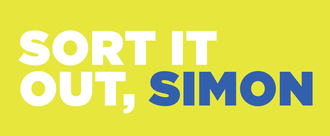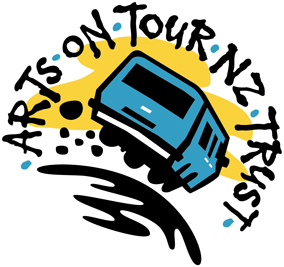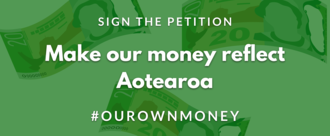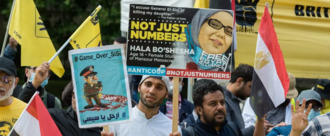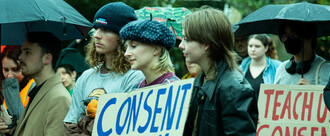-
Pardon cannabis offences and decriminalise cannabisSince 1980, over 120,000 New Zealanders have been convicted for cannabis use and possession. These people often lose whānau, jobs or housing, and have their lives marred by the stigma and shame of a drug conviction. This is despite 69% of New Zealanders supporting decriminalisation or legalisation of cannabis. Most of us believe that cannabis should not result in a life-shattering criminal conviction. In October 2022, President Joe Biden pardoned thousands of Americans convicted of cannabis possession. We’re calling on the New Zealand Government to follow suit and to decriminalise cannabis possession and use. We know that here in Aotearoa, the impact of our drug laws is not felt evenly across society. Māori, young people and men bear the burden of cannabis convictions. The US led the charge in making cannabis illegal to crack down on the civil rights movement and Indigenous communities. We have seen the impact of that felt across the world and throughout generations. Biden’s move is a monumental step towards righting the harm caused by cannabis convictions. This is the right move for the United States, and one that New Zealand must follow. References: https://www.drugfoundation.org.nz/policy-and-advocacy/state-of-the-nation-2022/ https://helenclark.foundation/press-release/umr-poll-finds-broad-bipartisan-support-for-cannabis-legalisation-or-decriminalisation-little-support-for-current-law/ https://www.drugfoundation.org.nz/news-media-and-events/new-poll-shows-most-new-zealanders-support-change-in-drug-laws/10,905 of 15,000 SignaturesCreated by NZ Drug Foundation
-
TVNZ, pull the FBoy Island NZ show immediately!We believe that New Zealand can be a country where all women are safe, seen and celebrated. As a broadcaster, you have a responsibility not to perpetuate stereotypes that have a high likelihood of harming women. It is 2022 and we deserve and demand better. Simon, you’re better than this, TVNZ is better than this. Sort it out, Simon. Pull FBoy Island NZ today. Tania Domett, Erin Jackson and Angela Meyer for Project Gender8,089 of 9,000 SignaturesCreated by Project Gender

-
Immediate Reinstatement of Core Funding for Arts On TourThe removal of core funding to Arts on Tour New Zealand is a slap in the face to small communities and towns around the country.(1) We demand Creative New Zealand immediately reinstate all funding to enable Arts on Tour to continue their terrific work in bringing vibrant and diverse live performance to these communities, and just as importantly, facilitate work opportunities for a wide range of actors, performers and musicians. The choice of Creative New Zealand to cut this funding suggests that small towns and communities are irrelevant, invisible and undeserving of high quality New Zealand cultural experiences through a touring arts programme. For those of us who live in these areas, we are already under siege with the closure of essential services: banks, post offices and health services. The arts are what make a difference to the social well-being of our communities. Arts on Tour NZ has done a sterling job in making the performing arts accessible to often overlooked parts of the country. Let them carry on with it as they have done so successfully over the past twenty-seven years. https://vimeo.com/756109379/75ded89975 References: 1. https://www.stuff.co.nz/the-press/news/129950443/arts-groups-across-new-zealand-lose-core-government-funding2,739 of 3,000 SignaturesCreated by Loretta Bush
-
Better protections for bus drivers in AotearoaI am a FIRST Union delegate and bus driver at NZ Bus, and I am launching this petition calling for three important protections for bus drivers at work following a spate of violent attacks by passengers around the country, including being assaulted myself this month at while work in Auckland. I am a trained health and safety representative, and recently I previously issued my employer with a Provisional Improvement Notice (PIN) following increasing assaults on his colleagues. The risk of assault by passengers seems to have increased in recent years, especially during and immediately after the Covid-19 pandemic. My fellow bus drivers have been physically harmed, subjected to racist abuse and just about everything else you can possibly think of going wrong involving passengers. Driving a bus is about much more than just driving the vehicle. Drivers in other transport jobs like freight and logistics don’t have the added stress and responsibility of making sure passengers are safe and on time to their locations, and they don’t have to deal with the consequences of antisocial behaviour and fare evasion. Other transport workers often paid much more than us bus drivers are. Bus drivers are not punching bags. We are not a person to take out your frustration on or to blame for wider grievances about public transport in your city. We are having to take leave from work, lose income, attend hearings and deal with police over the assaults that happen to us on a weekly or even daily basis, and it is not good enough. We bus drivers are sick of doing their best for passengers and being verbally, racially and physically attacked for it. All bus drivers deserve to feel safe on the job, and feel respected at our place of work. After all, we're carrying the most precious cargo — the people of our community.1,492 of 2,000 SignaturesCreated by FIRST Union
-
Save all of Pt Chev's heritage Building One & realign the internal Gate 1 road!Solution vs Demolition: Our local and extended community love this building. We respect its past & the aspirations of mana whenua and Te Tiriti obligations. The Unitec/Carrington site is about to become an urban development of up to 3500 homes. We support affordable, well designed housing, open spaces and amenities that can coexist with scheduled heritage and an alternative internal roading access design. The building has had a history as a psychiatric hospital (1865-1992) & as the home of Unitec’s vibrant Architecture and Design School (1994-2021). Our community trust's 2020 feasibility study for MHUD on the interim adaptive reuse of Carrington Hospital's Building One had overwhelming community support to activate Building One as an Arts, Creative & Wellbeing hub. Built in 1865 and finished in 1905, it has a footprint of 8500sqm, over 2 main levels, with 300 studio spaces including a gallery, library & café. Partial demolition will remove over 600sqm of unique spaces that could have been used by community groups & creatives such as visual artists, dancers, film makers & educators. This building & environs will lose its connection to our community if partially demolished. This is an important valued landmark and reference point for our everyday neighbourhood interactions & wellbeing. We love the spaces, the ecology, the memory, the heritage & support the exciting opportunities to come. We need your help to share our message with people who care about heritage, can influence decision makers & show that the new road option is a "win/win, both/and" vs "either/or" solution. Join our Building One page here: https://www.facebook.com/groups/318949932076119 Read more about our proposed solution here: https://www.pcset.org.nz/projects1,326 of 2,000 SignaturesCreated by Chris Casey
-
KiwiSaver Parity ProjectKiwiSaver is a crucial tool in saving for retirement and any flaws that create the potential for inequality must be addressed. The voluntary Contribution Sharing Scheme would allow couples (whether married or de facto) to share KiwiSaver contributions to ensure that the person foregoing paid work to have and/or care for children, earning less due to family responsibilities, or earning less due to various pay gaps compared to their full-time working partner, is not financially disadvantaged in retirement. This would benefit all families, which come in different shapes and sizes, and would particularly bring retirement parity to women who have lower KiwiSaver balances due to the gender pay gap and who typically are the ones who take time out of the workforce to have and care for children. • The Te Ara Ahunga Ora Retirement Commission has reported in 2022 the average KiwiSaver balance for women is 20 percent lower than for men(1). • A one-year parental leave break is expected to cost the average KiwiSaver member $5,100 to an individual’s KiwiSaver balance based on a 35-year-old earning $80,000 per year. That can compound up to $16,000 by the time someone reaches the age of 65 and this will grow exponentially over the years taken off or working part-time to care for children(2). • More often than not, women are paid less than men and those lower salaries translate through to lower KiwiSaver balances (Stats NZ reported the gender pay gap for the June 2022 quarter was 9.2%)(3). I see the impacts of this issue in my own family situation. My wife’s KiwiSaver balance is less than 40 percent of my own, primarily because she has taken time out of the workforce to have and take care of our children. It is not fair that she be penalised when her taking time off work for maternity and childcare has been of great benefit to us both. Introducing this Contribution Sharing Scheme is a relatively simple change that can make a massive difference to people’s lives. And this is not a world first: a similar type of scheme already exists in Australia and has been extremely successful. Sign the petition to ask the Government to address this systemic flaw in the KiwiSaver system, and reduce inequality in retirement savings. Sources: 1. Te Ara Ahunga Ora Retirement Commission (https://retirement.govt.nz/news/latest-news/new-data-reveals-for-the-first-time-largest-breakdown-of-kiwisaver-balances-across-all-ages-and-genders) 2. Based on a 35-year-old earning $80,000/ year contributing 3% of their salary investing in a growth fund up until they turn 65 3. Stats NZ - June 2022 quarter gender pay gap (https://stats.govt.nz/information-releases/labour-market-statistics-income-june-2022-quarter)933 of 1,000 SignaturesCreated by Rupert Carlyon

-
Make our money reflect AotearoaWe have an opportunity to honour the people who have contributed to our nation and showcase more symbols that truly represent us as Aotearoa. We have so many people in our country's history that have paved the way for us to be where we are today and how we will be in the future. This is in opportunity to acknowledge and recognise their hard work. We also have so many symbols that are important to us. From trees like the pōhutukawa to plants like harakeke to birds like the huia, all of these and so much more reflect who we are as a country. Our currency is one of the most public and identifiable things in our country, let’s make our money reflect Aotearoa! Right now, our coins and $20 note features the British monarchy who will never live in our country, let alone represent us. This is why we are calling on the Reserve Bank to replace the British monarchy references in the next redesign of coins and notes for our country with people and symbols that represent the country we love. References: https://www.stuff.co.nz/business/money/300683373/what-happens-now-to-new-zealands-coins-and-bank-notes https://www.renews.co.nz/why-im-respecting-but-not-mourning-queen-elizabeths-iis-death-opinion/?fbclid=IwAR3Cmr7SB3MoVzIHdPKsGeGet08sVPznSe8-sfg9sQT05mZ2GZI7Qn4E7883,254 of 4,000 SignaturesCreated by Te Matahiapo Safari Hynes

-
Allow more students to qualify for Student Allowance to reduce student poverty.Why is this important? University students in New Zealand live in poor conditions every day due to the lack of support from the government and with living costs rising rapidly, students are in need of support now more than ever. Annual inflation has risen to 6.9% which is the highest percentage in 30 years. This impacts petrol, housing, electricity, water use, supermarket shopping and all other necessities. Food prices went 8.3 in the last year alone. This makes it extremely difficult for students to cover the funds for living and studying at the same time. Out of 4500 students surveyed, ⅔ of students regularly do not have enough money to buy food, clothing, pay bills, get health care or other basics. The student loan provided by Study Link does not provide enough money for living expenses and the student allowance is very hard to qualify for. The average living cost in New Zealand is $3,000 per month. The maximum amount students can borrow through a student loan to help pay for living costs is $228.81 a week which adds up to less than a third of the average living cost per month. This is not enough for uni students to live in New Zealand's expensive living costs while still covering education fees, the government has high expectations of the next generation yet refuses to provide the necessary support and assistance to be financially able to study. It should therefore be the government's responsibility to financially assist a student in their education journey. Society expects people to go study and build themselves a degree and an education foundation so there are people available to fill jobs. An example is that society needs medical students to hold the responsibility of becoming a nurse or doctors to provide essential medical care. We believe that a positive change in policy regarding student allowance would have a significant benefit on students’ financial state. Education is a right, not a privilege, so everyone should be able to have an equal chance to be able to study. Supporting more students to be able to access the student allowance would create an opportunity to break the cycle of families and individuals who have never been able to gain a territory education due to financial hardship and not enough support. With more government assistance, this builds a stronger future generation.26 of 100 SignaturesCreated by Amy Friery
-
Ensure young people get paid fairly: Make minimum wage the same for ALLNo matter how old we are, we deserve to be paid fairly for our work. But right now the law in Aotearoa allows young people under 16 to be exploited. Ensuring youth are paid fairly is important due to the rapidly changing economic situations we face as a nation. Living costs are soaring, with food alone increasing 8.3% in the last year.(1) Young people are now beginning to work from a younger age to support themselves or their whanau. Under 16-year-olds are doing the same work as people 16 years and over yet do not legally have to be paid the minimum wage. Employers can currently pay under 16’s as little as they please, meaning youth can be exploited, overworked, and underpaid as there is no law to protect these rights or remove age-based discrimination.(2) References: 1. https://www.newshub.co.nz/home/money/2022/09/cost-of-living-grocery-bills-keep-going-up-as-food-prices-grow-by-8-3-percent-statistics-nz-says.html 2. https://www.business.govt.nz/hiring-and-managing/hiring-people/minimum-pay-rules/123 of 200 SignaturesCreated by Hannah McAdie
-
Call on the Egyptian Government to end the death penaltyIn 2011, a civilian led movement held protests which resulted in the country’s long standing dictator President Hosni Mubarak resigning, and inspiring pro-equality and democracy movements around the world. But democracy was short-lived. On July 3, 2013, a military coup ousted the democratically elected President. Since 2014, the person who led the military coup, who was the Minister of Defense at the time, Abdel Fattah Al-Sisi, has been the president of Egypt. Under President Sisi, people who have spoken out against his authoritarian government regime, including peaceful protestors and human rights advocates, have been arrested, executed and forced into exile. Mass trials of political opponents and reports of confessions forced under torture have become common place.(1,2,3) A 2021 stocktake of the situation in Egypt by Amnesty International found that human rights are severely repressed in the country. “Thousands of people, including human rights defenders, journalists, students, opposition politicians, business owners and peaceful protesters, remained arbitrarily detained. Dozens were convicted after grossly unfair trials or were tried by emergency courts on charges stemming from the peaceful exercise of their human rights. Enforced disappearances and torture continued unabated.” In October and November 2020, official reports are that 57 people were executed, although a pro-government media outlet reported 91 executions, citing anonymous official sources, over the same period. Egyptian authorities do not inform families or lawyers in advance of executions and people often die whilst in custody as a result of cruel conditions including lack of access to medical care.(3) Since 2013, hundreds of people have been killed in the streets, and the peaceful sit-ins that rejected the brutal coup were dispersed, resulting in massacres of civilians, the most famous of which were the Rabaa massacre and Al-Nahda massacre. (4) Climate justice requires an inclusive approach to environmental policy that embeds human rights and tackles system problems, including social injustice, ecological destruction, corruption, and social and economic inequality. COP27 cannot deliver climate justice while ignoring the Egyptian Government’s human rights abuses. Around the world in the lead up to COP27, people are taking action to call on their governments to use their diplomatic influence to join international efforts to push the Egyptian Government to end the death penalty and release the thousands of people who remain arbitrarily imprisoned.502 of 600 SignaturesCreated by Gasser Taher and Asmaa Shokr

-
Compulsory Consent Education in SchoolsStudents deserve to have the tools to build healthy, consensual relationships. Due to the lack of comprehensive and consistent consent education in schools and kura across Aotearoa, rangatahi are leaving high school with a varying understanding of consent and its importance within interpersonal relationships. Sexual violence has become an epidemic among high school students in Aotearoa. Despite the significant level of sexual harm, consent education is merely ‘advisable’ under the national health curriculum. If we continue to remain complicit in our treatment of sexual abuse within high schools, we are failing our future generations. Learning the importance of consent is vital to the formation of healthy and safe relationships. The Ministry of Education can not afford to continue to leave consent education to chance. Almost half of the victims of sexual assault (47%) are between 15 and 29 years old. Reports also indicate that 50% of wahine Maori have experienced sexual assault or physical violence. Gay, Lesbian, and Bisexual individuals are more than twice as likely to experience sexual assault than heterosexual adults. Trans and non-binary experience higher rates of sexual violence than male and female populations (Te Aorerekua, 2020). Therefore, It is imperative to ensure our consent education policies are inclusive and are targeted to our rangatahi. Currently, in New Zealand, there is no legal requirement for high schools to teach their students about consent. The Ministry of Education Relationships and Sexuality Guidelines outline that consent education is crucial to students’ wellbeing and development, but the Ministry of Education has no specific auditing process to ensure schools are implementing these guidelines. After reviewing over 300 testimonies involving sexual harm and/or what education around consent they recieved from young people around Aotearoa, it is clear that our national consent education is severely inconsistent. Many submissions from students explained they felt their consent education was inadequate or received none at all. We want to ensure that our rangatahi are receiving the consent education they both need and deserve. The Guidelines envision a relatively high standard of consent education but have no means of ensuring that secondary schools actually implement it within their curriculum.4,124 of 5,000 SignaturesCreated by Genna Hawkins Boulton

-
Reduce Alcohol Harm: Pass the Bill!Most of us want to live, work, play and raise our children in communities that are healthy, safe and connected. When our communities are safe and healthy we give ourselves and our families the best chance to thrive, grow, and enjoy the things that are most important to us. But the massive and varied harms to health, relationships, and livelihoods from alcohol gets in the way of so many of the things that are important to us. We currently have a rare opportunity to address this problem and make our communities better places to live, work, and play with the Sale and Supply of Alcohol (Harm Minimisation) Amendment Bill about to go before parliament. Sign this petition to ask your Member of Parliament, representing your community and our nation, to support the best chance for alcohol reform we have had for ages. What makes the Sale and Supply of Alcohol (Harm Minimisation) Amendment Bill so great? ⭐️ The Bill will remove the special appeals process from local alcohol policy development, so that communities, not alcohol retailers, have a greater say when it comes to local decisions around where, when and how alcohol can be sold. ⭐️ The Bill will also end alcohol advertising and sponsorship of broadcast sport, implementing some of the recommendations from Sir Graham Lowe’s 2014 Ministerial Forum on Alcohol Advertising and Sponsorship. These measures are among the strongest tools available to turn around heavy drinking in our communities. And they are long overdue. Our communities have suffered the effects of our failed liquor laws. Māori, Pasifika and low income communities continue to shoulder the greatest burden of alcohol harm. Alcohol retailers have endlessly appealed Councils’ local alcohol policies so that they no longer resemble the wishes of their constituent communities. Councils’ have expressed frustration at their alcohol policies being watered down to appease the alcohol industry. For this reason, many Councils have formally endorsed the Bill. Ending alcohol sponsorship of broadcast sport serves to protect current and future generations from the established harms of alcohol marketing, especially children who are heavily influenced by their sporting heroes. Winding up alcohol sponsorship of broadcast sport allows communities to experience the richness of connection and community through a healthy activity, without being harmed by the influence of alcohol advertising. Reducing alcohol harm means better mental health, improved child wellbeing, reduced family harm, less pressure on our health system, less pressure on police and emergency services, and improved productivity and economic growth. Alcohol harm impacts almost everything we care about as New Zealanders. Urge your Member of Parliament to be brave and go on the public record with their support of this Bill. Ask them to vote for this Bill at first reading and engage in the Select Committee process. Let’s not squander this opportunity. Together, we can create safer, healthier and fairer communities. The next steps for the Bill: The Bill could be debated as early as August. So it's important to show your support now! The Bill needs 61 votes from MPs to pass its first reading in Parliament so it can proceed to Select Committee. Then communities will be able to have their say on the Bill through the public consultation process. Read our evidence-based factsheets for more information: 👀 The Sale and Supply of Alcohol (Harm Minimisation) Bill https://www.ahw.org.nz/Portals/5/Resources/Fact%20Sheet/2022/Factsheet_Alcohol_Harm_Minimisation_Bill_2022.pdf 👀 Alcohol Sponsorship of Sport in Aotearoa New Zealand https://www.ahw.org.nz/Portals/5/Resources/Fact%20Sheet/2022/AHW%20Alcohol%20sponsorship%20factsheet%20June%202022.pdf For more information, check out our website at www.passthebill.org.nz. This community action initiative is a collaboration between Alcohol Healthwatch and Hāpai te Hauora.8,240 of 9,000 SignaturesCreated by Alcohol Healthwatch



